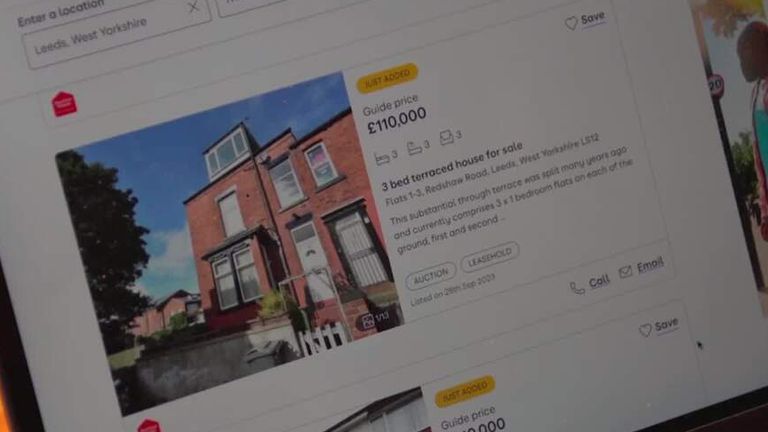70 British local authorities where house prices have risen, bucking overall trend


House prices have grown in 70 local authorities across Britain despite an overall UK-wide fall, according to the latest analysis from a subsidiary of the UK’s largest mortgage lender.
The area with the largest increase was Powys in Wales, which is Wales’s largest and least densely populated county, containing most of Bannau Brycheiniog, formerly known as Brecon Beacons National Park.
There, the average property cost £253,958 – 17.4% more in the three months to the end of September than the same time a year earlier, analysis of the Halifax house price index showed.
Halifax is owned by the Lloyds Banking Group, the UK’s biggest mortgage provider.
It was followed by East Lindsey in the East Midlands, where properties grew 13.3% more costly to £220,421 on average, the greatest increase in England.
Read more on Sky News:
Homes numbered 13 are unlucky for sellers, analysts say
Zoopla says number of UK property sales on track to fall
Contained in the East Lindsey district is the Lincolnshire Wolds area of outstanding natural beauty (AONB) and three blue flag beaches.
The third greatest price rise came in another largely rural area, Moray in Scotland which comprises part of the Cairngorms National Park. Prices rose 10.7% from the three months to September 2022 to 2023, with the average property costing £179,606.
Please use Chrome browser for a more accessible video player
1:00
Zoopla’s Richard Donnell: House price falls to continue in 2024
They’re the top three of more than 70 local authority areas where average house prices have risen over the last 12 months in defiance of the national trend.
Advertisement
Across the UK, house prices are down nearly 4% (3.9%) over the last year, Halifax said, as higher interest rates have made mortgages more expensive, which has dampened demand among prospective buyers.
Typical house prices in more than 300 local authority areas were looked at as part of the analysis.
“In many regions there remain pockets of house price growth,” said the director of Halifax mortgages Kim Kinnaird.
“While a limited supply of properties for sale could be a factor, this also suggests in some areas, local market activity – and demand among buyers – remains strong.”
While there were double digit house price increases, the largest falls remained in single digits.
Biggest falls in house costs came in the south east of England, with a 5.7% drop, and in the south west of the country with a 5.5% decline.